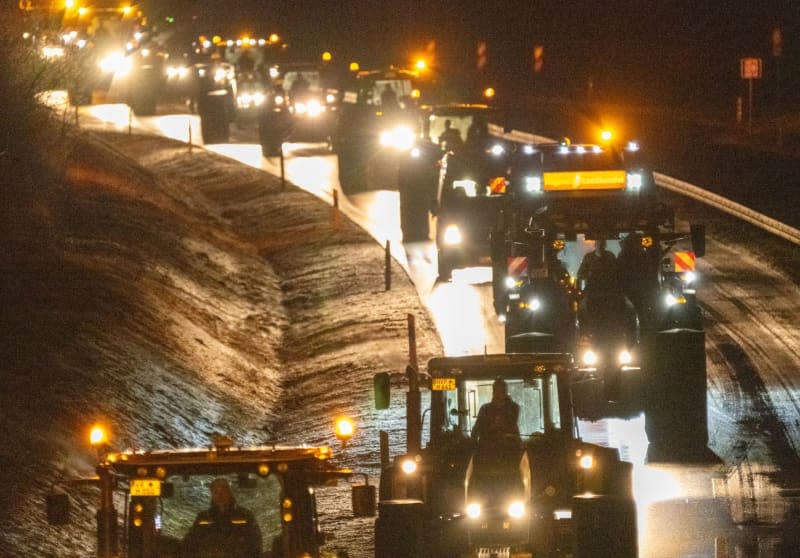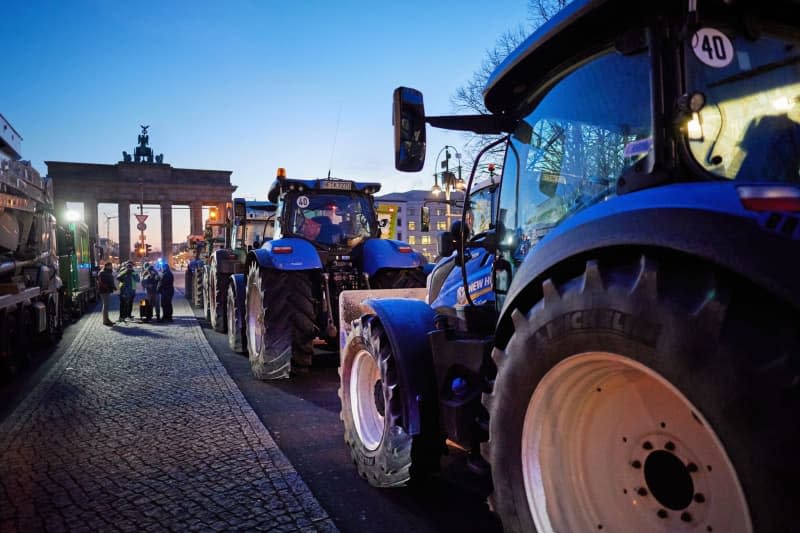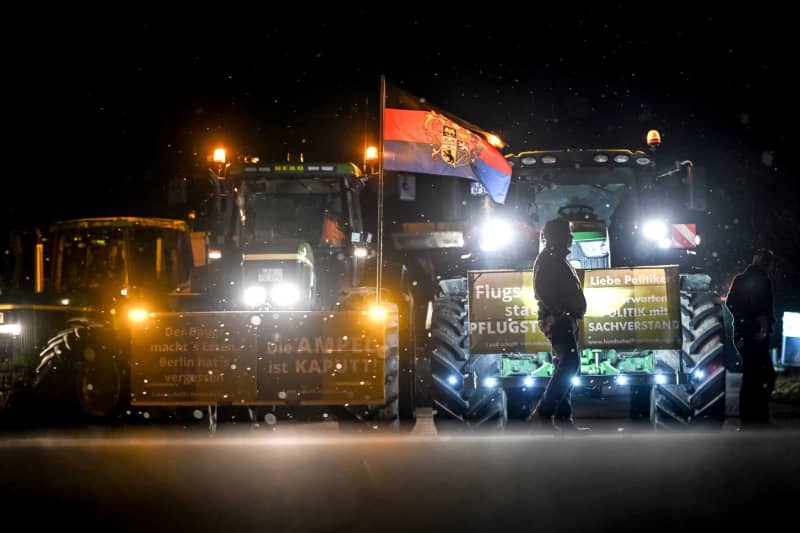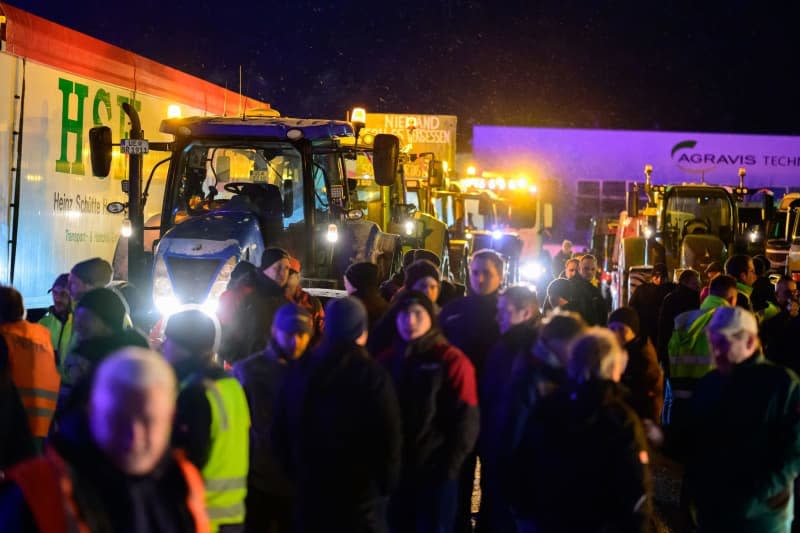Farmers' tractor protests cause Monday rush hour chaos across Germany

German farmers protesting against agricultural policy changes have caused disruptions in multiple regions of northern and eastern Germany on Monday morning.
In the north-eastern German state of Mecklenburg-Western Pomerania farmers blocked motorway entrances with hundreds of tractors across the state. They were supported by haulage companies protesting against the increase in truck tolls.
In the district of Cloppenburg in north-west Lower Saxony, a main road was blocked by 40 vehicles.
In Saxony, according to the police, some motorway slip roads in the Dresden area were blocked. There were gatherings on the A4, A13, A14 and A17 motorways.
In Berlin, the situation was initially calm in the early morning but tractors had already started gathering at the Brandenburg Gate in central Berlin on Sunday evening.
A major road near the Brandenburg Gate will be closed all day due to a registered demonstration.
The Farmers' Association had called for a week of action to demonstrate against the cancellation of subsidies for the sector. The main issue is the tax concessions for agricultural diesel. A partial cancellation of the federal government's savings plans did not placate the association.
The actual effects are likely to vary greatly from region to region. In Erfurt, 900 tractors are expected to attend a central protest by Thuringian farmers.
In northern Germany, the city of Hamburg warned in advance of traffic disruptions because farmers from neighbouring Schleswig-Holstein plan to drive to a rally in the city from several directions.
Farmers in Lower Saxony want to set off by road for a rally in Bremen.
German farmers are outraged by the federal government's planned reduction in agricultural subsidies, including for fuel, although some of the measures have already been rolled back.
The aim of disruptions planned by the farmers' association is to ensure that the government of Chancellor Olaf Scholz completely reverses the planned cuts.




